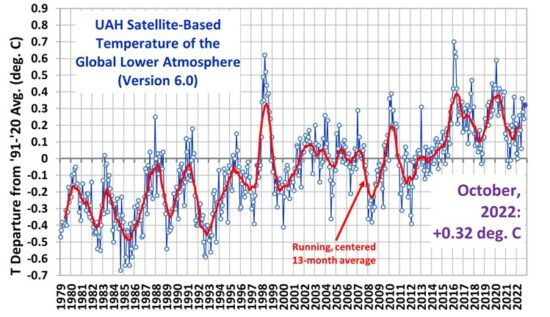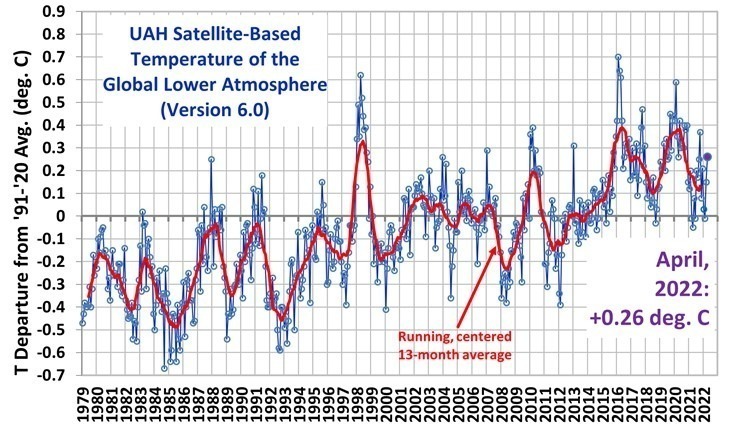Makes a lot of sense.
When we see public marches supporting some scientific issue, it suggests a degree of desperation. One wonders what could possibly be wrong with the “science” if it does not stand proudly on its own merits?
Too many people are able to see when science is being adulterated and used for a political agenda and it is apparently hoped that public marches will counter their influence.
Science has its logical basis and departures from logic cannot be ignored.
From ‘The Stream‘
Anyone who has studied the history of science knows that scientists are not immune to the non-rational dynamics of the herd.
iStockphoto
This week’s March for Science is odd. Marches are usually held to defend something that’s in peril. Does anyone really think big science is in danger? The mere fact that the March was scheduled for Earth Day betrays what the event is really about: politics. The organizers admitted as much early on, though they’re now busy trying to cover the event in sciencey camouflage.
If past is prologue, expect to hear a lot about the supposed “consensus” on catastrophic climate change this week. The purpose of this claim is to shut up skeptical non-scientists.
How should non-scientists respond when told about this consensus? We can’t all study climate science. But since politics often masquerades as science, we need a way to tell one from the other.
“Consensus,” according to Merriam-Webster, means both “general agreement” and “group solidarity in sentiment and belief.” That sums up the problem. Is this consensus based on solid evidence and sound logic, or social pressure and groupthink?
When can you doubt a consensus? Your best bet is to look at the process that produced, defends and transmits the supposed consensus.
Anyone who has studied the history of science knows that scientists are prone to herd instincts. Many false ideas once enjoyed consensus. Indeed, the “power of the paradigm” often blinds scientists to alternatives to their view. Question the paradigm, and some respond with anger.
We shouldn’t, of course, forget the other side of the coin. There are cranks and conspiracy theorists. No matter how well founded a scientific consensus, there’s someone who thinks it’s all hokum. Sometimes these folks turn out to be right. But often, they’re just cranks whose counsel is best ignored.
So how do we distinguish, as Andrew Coyne puts it, “between genuine authority and mere received wisdom? And how do we tell crankish imperviousness to evidence from legitimate skepticism?” Do we have to trust whatever we’re told is based on a scientific consensus unless we can study the science ourselves? When can you doubt a consensus? When should you doubt it?
Your best bet is to look at the process that produced, defends and transmits the supposed consensus. I don’t know of any complete list of signs of suspicion. But here’s a checklist to decide when you can, even should, doubt a scientific “consensus,” whatever the subject. One of these signs may be enough to give pause. If they start to pile up, then it’s wise to be leery.
Read the whole article here. It is most educational.





“Anyone who has studied the history of science knows that scientists are prone to herd instincts. Many false ideas once enjoyed consensus. Indeed, the “power of the paradigm” often blinds scientists to alternatives to their view. Question the paradigm, and some respond with anger.
I have been studying the history of science for 55 years and I don’t see that at all. The whole basis of peer-reviewed science is to discover if that science is real. Can it be repeated, consistently? Can it be done differently.
Personally, I think this whole blog post was pretty much crap.
The US National Academy of Sciences was one of the sponsors of the March for Science.
The US NAS consider’s President Trump a real threat to NAS control of budgets and research programs of federal research agencies.
I believe NAS is right. It fact that is why I voted
for Trump.
The US NAS is a private, self-perpetuating group of once-distinguished scholars and scientists that Lincoln appointed to advise governmet on science and technology in the 1860s. They now control review of budgets and programs of federal research agencies for Congress.
The US NAS is probably the greatest threat to the integrity of government science today, for reasons explained here:
https://jonrappoport.wordpress.com/2017/04/24/insane-shrinks-say-trump-mentally-ill-official-science-howls-at-the-moon/#comment-222375
The corrupting influence of Nobel Prizes on the integrity of science can be seen by reading and comparing Chadwick’s:
1. 1932 report of experimental evidence for the neutron as Rutherford’s “compacted electron-proton pair”, and
2. 1935 Noble Lecture saying the QM system prevented the neutron from being Rutherford’s “compacted electron-proton pair.”
Click to access Nuclear_Energy_Error7.pdf
Has communism secretly taken control of our governments worldwide?
1. Did Stalin capture Japan’s atomic bombs at Konan, Korea, capture and hold the entire crew of an American B-29 bomber for negotiations in late August 1945?
https://dl.dropboxusercontent.com/u/10640850/The_Atlanta_Constitution_3_Oct_1946.htm
2. Were nations and national academies of sciences united two months later under the UN, on 24 Oct 1945, to hide the source of energy in atomic bombs from the public?
3. Was a simple logical error used to hide the source of energy in atomic bombs from the public and take control of the world?
Click to access Nuclear_Energy_Error7.pdf
Did anyone here attend the recent science conference at the Vatican Observatory?
http://www.vaticanobservatory.va/content/specolavaticana/en.html
That might have been a golden opportunity to get to the root of the problem in science.
I personally knew the new Director of the Vatican Observatory several years ago, when he did postdoctoral research at Harvard for Prof. A.G.W. Cameron, the astrophysicist inserted into the published list of speakers for the 1976 AGU Meeting at the last minute, to speak (without abstract) at the time scheduled for Dr. D. D. Sabu and I to defend our 1975 report, the Sun made our chemical elements and birthed the solar system in a supernova [“Elemental and isotopic inhomogeneities in noble gases: The case for local synthesis of the chemical elements,” Transactions Missouri Academy Sciences 9, 104-122 (1975)]
Click to access Supernova_Birth_World.pdf
Precise measurements and observations reveal the Creator’s genius in the simplistic elegance of two statements that summarize discoveries by Prout (1815) and Rutherford (1920) but are totally alien to modern science in the Vatican Observatory:
Two forms of the H-atom are the alpha and omega building blocks of atoms, lives and the entire cosmos:
1. The expanded, low-pressure form is on the surfaces of stars. They fill interstellar space. A weak, long-range gravitational force of attraction between hydrogen atoms will cause collapse.
2. The compacted, high-pressure form is in cores of heavy atoms, stars and galaxies. A strong, short-range force neutron repulsion causes heavy atoms, stars and galaxies to fragment, evaporate.
That is why the universe is alive. Solar hydrogen is like beauty, only skin deep
Reblogged this on Independent Citizens and commented:
When political chicanery uses science as an argument what are the signs you are being conned?
Link to the list is at the end of the article. Substitute “Covid” for “climate change”.
………………..
Pingback: Politics Disguised as Science: When to Doubt a ...